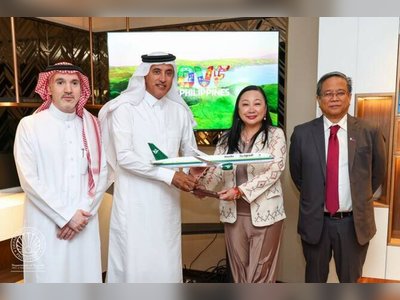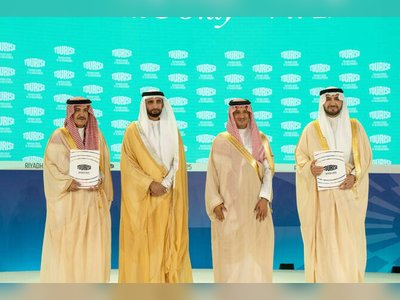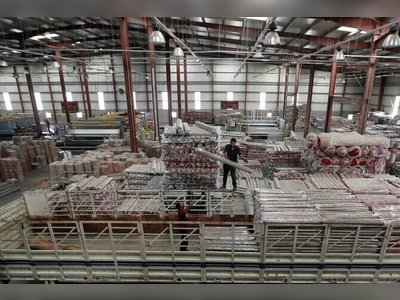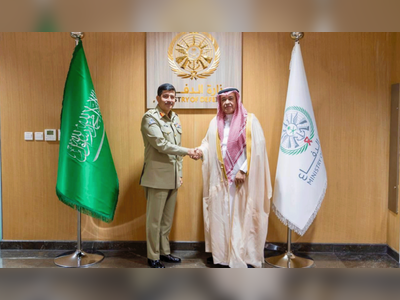
Joby Aviation and Saudi Arabia Plan Electric Air Taxi Deployment Under Vision 2030
MoU with Saudi authority outlines streamlined certification, local manufacturing and air-taxi services in the Kingdom
A new memorandum of understanding between Joby Aviation and the General Authority of Civil Aviation (GACA) of Saudi Arabia sets out a plan to deploy Joby’s electric air-taxi aircraft in the Kingdom by aligning regulatory standards and building local capabilities.
The agreement will rely on the U.S. Federal Aviation Administration (FAA)’s certification standards as the foundation for Saudi approval, enabling a more efficient regulatory pathway.
GACA and Joby will collaborate on type-design technical expertise, production and operations, airworthiness validation and integration of advanced air-mobility services in Saudi airspace.
Captain Sulaiman bin Saleh Al-Muhaimedi, GACA’s executive vice-president for aviation safety and environmental sustainability, called the initiative “a critical step in advancing the Kingdom’s advanced air-mobility ambitions,” emphasising plans to localise manufacturing and scale national talent under the country’s Vision 2030 infrastructure agenda.
Joby’s founder and CEO JoeBen Bevirt said the company looked forward to bringing “quiet, fast and convenient air mobility” to Saudi Arabia.
This announcement builds on the earlier MoU Joby signed in June 2025 with Abdul Latif Jameel to explore delivery of up to 200 electric air-taxi aircraft and related services in Saudi Arabia, a deal valued at roughly one billion dollars.
With the new agreement, Saudi Arabia joins a select group of launch markets for Joby’s commercial zero-emission air taxi service, alongside the United States, United Kingdom, Japan and United Arab Emirates.
The focus now shifts to developing pilot-training programmes, defining air-taxi infrastructure and integrating eVTOL (electric vertical take-off and landing) aircraft into urban mobility networks.
The collaboration reaffirms Saudi Arabia’s ambition to transform its transport sector, support high-tech manufacturing and accelerate deployment of advanced mobility solutions.
The coming months will test how quickly regulation, infrastructure and aircraft certification can align to bring the service from conception to operation in the Kingdom.
The agreement will rely on the U.S. Federal Aviation Administration (FAA)’s certification standards as the foundation for Saudi approval, enabling a more efficient regulatory pathway.
GACA and Joby will collaborate on type-design technical expertise, production and operations, airworthiness validation and integration of advanced air-mobility services in Saudi airspace.
Captain Sulaiman bin Saleh Al-Muhaimedi, GACA’s executive vice-president for aviation safety and environmental sustainability, called the initiative “a critical step in advancing the Kingdom’s advanced air-mobility ambitions,” emphasising plans to localise manufacturing and scale national talent under the country’s Vision 2030 infrastructure agenda.
Joby’s founder and CEO JoeBen Bevirt said the company looked forward to bringing “quiet, fast and convenient air mobility” to Saudi Arabia.
This announcement builds on the earlier MoU Joby signed in June 2025 with Abdul Latif Jameel to explore delivery of up to 200 electric air-taxi aircraft and related services in Saudi Arabia, a deal valued at roughly one billion dollars.
With the new agreement, Saudi Arabia joins a select group of launch markets for Joby’s commercial zero-emission air taxi service, alongside the United States, United Kingdom, Japan and United Arab Emirates.
The focus now shifts to developing pilot-training programmes, defining air-taxi infrastructure and integrating eVTOL (electric vertical take-off and landing) aircraft into urban mobility networks.
The collaboration reaffirms Saudi Arabia’s ambition to transform its transport sector, support high-tech manufacturing and accelerate deployment of advanced mobility solutions.
The coming months will test how quickly regulation, infrastructure and aircraft certification can align to bring the service from conception to operation in the Kingdom.











